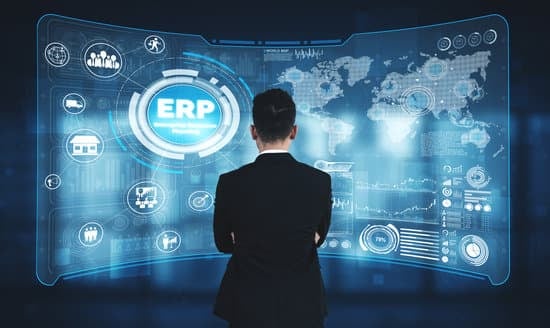1 min read
IFS Cloud Overview
Indeed, finding the right ERP (Enterprise Resource Planning) software can be complex, with businesses aiming to enhance their operational efficiency...

Selecting the right enterprise resource planning (ERP) system for your business can help you streamline your operations, improve efficiency, and drive business growth.
“As enterprises strive for more efficient operations across the board, enterprise resource planning (ERP) software is an increasingly sought-after solution for improving processes at the business application level,” writes Shelby Hiter in CIO Insight. “ERP software ignites disparate back-office applications, business processes, and workflows in a single platform. It can lead to new advantages like improved data sharing, increased data quality and accuracy, and administrative visibility.”
Enterprise resource planning (ERP), according to Oracle, refers to a type of software that organizations use to manage day-to-day business activities such as accounting, procurement, project management, risk management and compliance, and supply chain operations.
“A complete ERP suite also includes enterprise performance management, software that helps plan, budget, predict, and report on an organization’s financial results,” says Oracle. “Enterprise resource planning systems are complete, integrated platforms, either on-premises or in the cloud, managing all aspects of a production-based or distribution business. Furthermore, ERP systems support all aspects of financial management, human resources, supply chain management, and manufacturing with your core accounting function.”
While the Gartner Group was the first to use the ERP acronym in the 1990s, its roots can be traced back to 1913 when engineer Ford Whitman Harris developed the economic order quantity (EOQ) model, a paper-base manufacturing system for production scheduling.
In 1964, toolmaker Black and Decker became the first company to adopt a material requirements planning (MRP) solution that combined EOQ concepts with a mainframe computer.
MRP, and later MRP II in 1983, became the manufacturing standard. Starting in the 1990s, ERP made its way into the business lexicon and ERP systems adoption grew rapidly.
CIO magazine argues that ERP systems are the backbone of modern business.
“The agility afforded by a modern ERP system backed by honed business processes can help any company compete in today’s business environment, which has been severely affected by supply chain disruptions as well as disruptions to traditional business operations due to employees working from home due to COVID,” writes Neal Weinberg for CIO. “If your organization has cobbled together point solutions or limped along with a legacy, on-premises ERP platform, it may be time to invest in overhauling how your business operates.”
Oracle says the benefits of implementing an ERP system include:
Understanding your company needs to select an ERP system is the first step. Selecting the right ERP system for your business can be a tough chore.
“With so many enterprise resource planning options in the marketplace today, selecting a package for your business can be an overwhelming task,” says TechRepbulic. “While many companies feel that any software will work and their organizations will simply conform to the functionality of the software, widely publicized ERP failures indicate that this isn’t the best solution.”
If you want your ERP system to be a transformational business initiative that can provide your company with a competitive advantage, then look for these 7 things in an ERP system:
“Despite all of the benefits that can come from an ERP system, many enterprises make the mistake of selecting an ERP solution that fits poorly into their business model and goals,” warns Hiter. “All key users, applications, and daily business processes will be affected by the ERP platform you select and how your team sets it up. If your team invests the appropriate time and research into finding the right ERP system, your entire company will be set up for success as they begin to select modules and deploy the tool across different departments.”
Contact KnowledgePath today to help your enterprise successfully navigate the process of ERP evaluation and business transformation while reducing cost and risk.
.png)
1 min read
Indeed, finding the right ERP (Enterprise Resource Planning) software can be complex, with businesses aiming to enhance their operational efficiency...
.png)
Enterprise Resource Planning (ERP) systems are no longer just tools for industry giants—they’ve become the backbone of operational efficiency for...

There are many reasons that a company chooses its enterprise resource planning (ERP) system from improving efficiency to streamlining operations.